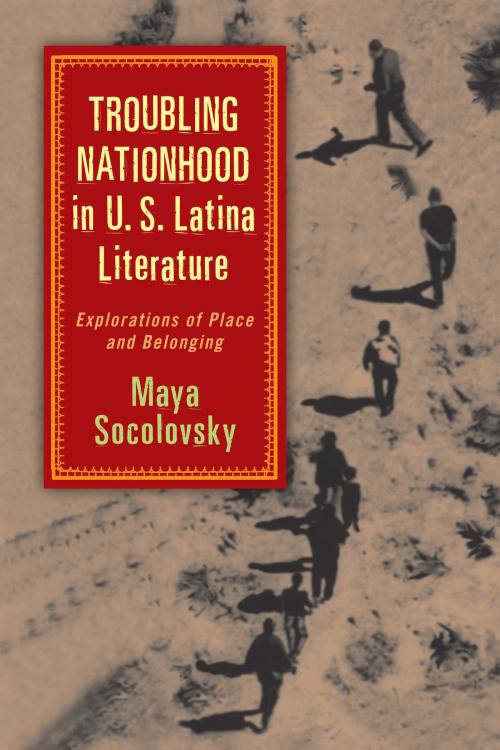Troubling Nationhood in U.S. Latina Literature
Explorations of Place and Belonging
Fiction & Literature, Literary Theory & Criticism, American| Author: | Maya Socolovsky | ISBN: | 9780813569895 |
| Publisher: | Rutgers University Press | Publication: | June 26, 2013 |
| Imprint: | Rutgers University Press | Language: | English |
| Author: | Maya Socolovsky |
| ISBN: | 9780813569895 |
| Publisher: | Rutgers University Press |
| Publication: | June 26, 2013 |
| Imprint: | Rutgers University Press |
| Language: | English |
This book examines the ways in which recent U.S. Latina literature challenges popular definitions of nationhood and national identity. It explores a group of feminist texts that are representative of the U.S. Latina literary boom of the 1980s, 1990s, and 2000s, when an emerging group of writers gained prominence in mainstream and academic circles. Through close readings of select contemporary Mexican American, Puerto Rican, and Cuban American works, Maya Socolovsky argues that these narratives are “remapping” the United States so that it is fully integrated within a larger, hemispheric Americas.
Looking at such concerns as nation, place, trauma, and storytelling, writers Denise Chavez, Sandra Cisneros, Esmeralda Santiago, Ana Castillo, Himilce Novas, and Judith Ortiz Cofer challenge popular views of Latino cultural “unbelonging” and make strong cases for the legitimate presence of Latinas/os within the United States. In this way, they also counter much of today’s anti-immigration rhetoric.
Imagining the U.S. as part of a broader "Americas," these writings trouble imperialist notions of nationhood, in which political borders and a long history of intervention and colonization beyond those borders have come to shape and determine the dominant culture's writing and the defining of all Latinos as "other" to the nation.
This book examines the ways in which recent U.S. Latina literature challenges popular definitions of nationhood and national identity. It explores a group of feminist texts that are representative of the U.S. Latina literary boom of the 1980s, 1990s, and 2000s, when an emerging group of writers gained prominence in mainstream and academic circles. Through close readings of select contemporary Mexican American, Puerto Rican, and Cuban American works, Maya Socolovsky argues that these narratives are “remapping” the United States so that it is fully integrated within a larger, hemispheric Americas.
Looking at such concerns as nation, place, trauma, and storytelling, writers Denise Chavez, Sandra Cisneros, Esmeralda Santiago, Ana Castillo, Himilce Novas, and Judith Ortiz Cofer challenge popular views of Latino cultural “unbelonging” and make strong cases for the legitimate presence of Latinas/os within the United States. In this way, they also counter much of today’s anti-immigration rhetoric.
Imagining the U.S. as part of a broader "Americas," these writings trouble imperialist notions of nationhood, in which political borders and a long history of intervention and colonization beyond those borders have come to shape and determine the dominant culture's writing and the defining of all Latinos as "other" to the nation.















